Why Global Developers Choose Lida Group for Easy-Assemble, Low-Cost Prefab Mobile House Projects in Urbanizing Areas
2025-Oct-10 14:26:59
By Admin
1. Introduction: The Housing Crisis in Rapidly Urbanizing Areas
The 21st century has witnessed an unprecedented wave of urbanization. According to the United Nations, over 56% of the world’s population now lives in urban areas, and this figure is projected to rise to 68% by 2050. Cities in Asia, Africa, and Latin America are growing the fastest—places like Delhi, Lagos, and São Paulo add millions of new residents each year as people migrate from rural areas in search of better jobs, education, and healthcare. This rapid urban expansion has created an acute housing crisis: demand for affordable, accessible shelter far outpaces supply, leaving millions of families in overcrowded slums, informal settlements, or temporary housing.
For global real estate developers, urbanizing areas present both opportunity and challenge. On one hand, the growing population creates a massive market for housing, commercial spaces, and community infrastructure. On the other hand, developers face significant barriers to meeting this demand: skyrocketing land costs in city centers, lengthy and bureaucratic construction permits, labor shortages (exacerbated by competition from large-scale infrastructure projects), and pressure to reduce the environmental impact of new developments. Traditional on-site construction—with its high costs, slow timelines, and wasteful processes—has proven increasingly unfit to address these challenges.
In this context, prefabricated (prefab) mobile housing has emerged as a viable solution. Unlike traditional homes, prefab mobile houses are manufactured in factories, transported to sites, and assembled quickly—cutting costs, reducing construction time, and minimizing waste. But not all prefab solutions are created equal. Many providers offer products that are either too expensive for mass-market urban projects, too inflexible to adapt to diverse urban needs, or too complex to assemble in dense city environments.
This is where Lida Group stands out. As a global leader in prefab construction, Lida Group has developed a line of easy-assemble, low-cost prefab mobile houses that are specifically designed to thrive in urbanizing areas. For developers operating in these fast-changing markets, Lida Group is not just a supplier—it is a strategic partner that solves their most pressing pain points. This article explores why global developers are increasingly choosing Lida Group for their urban prefab projects, examining the company’s product advantages, developer-centric services, real-world success stories, and alignment with the long-term goals of sustainable urban development.
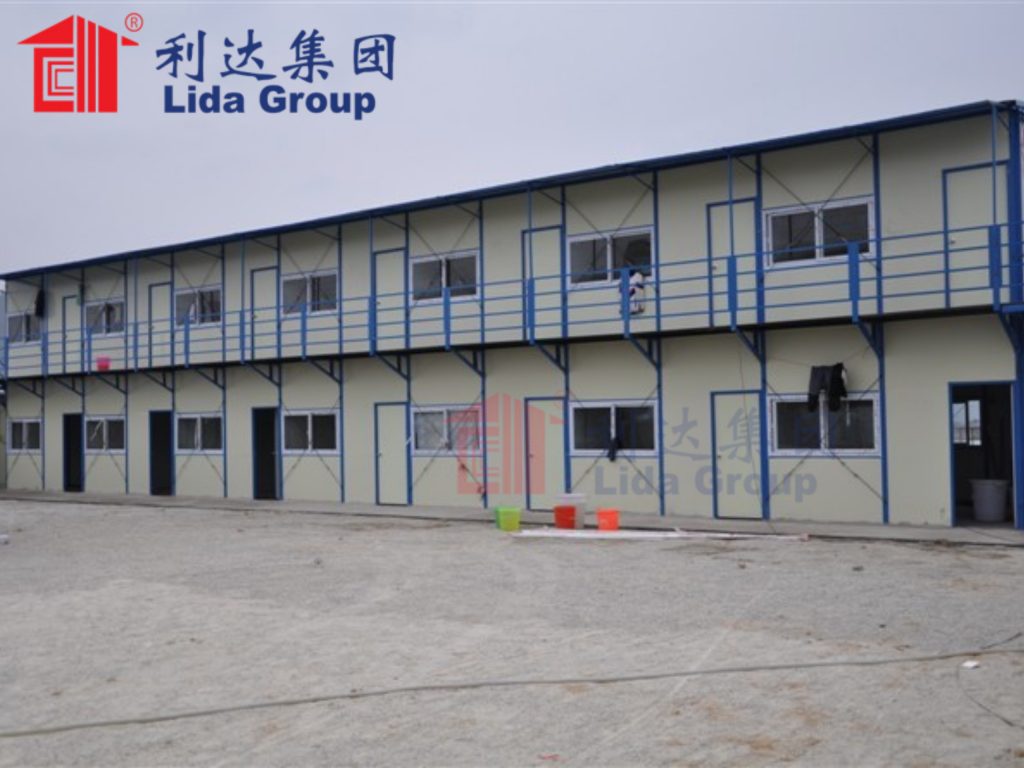
2. Core Advantages of Lida Group’s Prefab Mobile Houses for Urban Projects
Developers prioritize solutions that deliver value—whether in the form of cost savings, faster timelines, or flexibility to meet market demands. Lida Group’s prefab mobile houses excel in all these areas, making them uniquely suited for urbanizing environments. Below are the key advantages that attract global developers.
2.1 Low Cost: Maximizing Profit Margins in High-Cost Urban Markets
Land and construction costs are the two biggest expenses for developers in urban areas. In cities like Mumbai or Mexico City, land prices can account for 50–70% of a project’s total cost, leaving little room for overspending on construction. Lida Group’s prefab mobile houses address this by slashing construction costs by 30–40% compared to traditional on-site building.
The cost savings stem from three key factors:
- Factory Production Efficiency: Lida Group manufactures house modules in automated factories, where materials are used more efficiently (waste is reduced to less than 2%, compared to 15% in traditional construction) and labor costs are lower (automation reduces the need for skilled workers). For example, producing a 30-square-meter house module in Lida Group’s factory costs \(3,000–\)4,000, compared to \(5,000–\)6,000 for on-site construction of the same size.
- Reduced On-Site Labor Costs: The easy-assemble design of Lida Group’s houses eliminates the need for large teams of skilled laborers (such as carpenters or masons), which are in short supply and expensive in urban areas. A team of 2–3 unskilled workers (trained by Lida Group) can assemble a 30-square-meter house in 1–2 days, cutting on-site labor costs by 50–60%.
- Minimal Site Preparation: Traditional urban construction requires extensive (and expensive) site preparation—such as digging deep foundations, clearing large areas, or reinforcing existing infrastructure. Lida Group’s houses use lightweight, portable foundations (like steel frames or concrete blocks) that can be installed on small, irregularly shaped plots of land with minimal preparation. This saves developers thousands of dollars per project, especially in dense cities where space is at a premium.
For developers, these cost savings translate directly to higher profit margins or the ability to offer lower-priced housing (critical for accessing mass-market segments in urbanizing areas). In a 2023 survey of Lida Group’s developer partners, 82% cited “cost reduction” as the top reason for choosing the company’s products. “In Lagos, land costs are so high that we need every dollar of construction savings to make our projects profitable,” said Adeolu Okafor, a Nigerian developer who has built 500 Lida Group houses in urban neighborhoods. “Lida’s system lets us build affordable homes for low-income families while still making a reasonable profit—something we couldn’t do with traditional construction.”
2.2 Easy Assembly: Accelerating Project Timelines in Fast-Paced Cities
In urbanizing areas, time is money. Developers face pressure to complete projects quickly to meet growing demand, secure rental income, or avoid penalties for delayed permits. Traditional construction in cities can take 6–12 months for a small residential project (due to permit delays, labor shortages, or weather disruptions). Lida Group’s prefab mobile houses reduce project timelines by 50–70%, allowing developers to bring projects to market faster.
The speed advantage comes from the system’s modular, click-and-lock design:
- Factory Production Parallels Site Preparation: While developers are securing permits or preparing the site (a process that can take 1–2 months), Lida Group is manufacturing the house modules in its factory. This parallel workflow eliminates the “wait time” that plagues traditional construction, where site preparation must be completed before building can begin.
- Rapid On-Site Assembly: As noted earlier, a small team can assemble a Lida Group house in days, not weeks. For a large project—such as a 100-house development—assembly can be completed in 4–6 weeks, compared to 4–6 months for traditional construction.
- Weather and Permit Resilience: Factory production is not affected by weather (unlike on-site construction, which can be delayed by rain, heat, or storms). Additionally, Lida Group’s houses often qualify for faster permits in urban areas, as many cities classify prefab construction as “low-impact” and streamline approval processes for such projects.
This speed is a game-changer for developers operating in fast-growing cities. For example, a Singapore-based developer used Lida Group’s system to build a 200-house project in Jakarta, Indonesia. The project was completed in 8 weeks—compared to the 6 months it would have taken with traditional construction—allowing the developer to start renting units 4 months earlier and generate $200,000 in additional rental income.
2.3 Flexibility: Adapting to Diverse Urban Needs
Urbanizing areas are not homogenous. A developer might need to build low-income housing in a dense slum neighborhood, temporary worker housing near a construction site, or small commercial spaces in a growing suburban area—all within the same city. Lida Group’s prefab mobile houses are flexible enough to meet all these needs, thanks to their modular design.
The flexibility manifests in three ways:
- Customizable Layouts: Developers can mix and match modules to create homes of any size or function. A 15-square-meter module can be a single-person studio, while combining 4–5 modules can create a 3-bedroom family home. Modules can also be configured as shops, offices, or community centers—allowing developers to diversify their projects and tap into multiple revenue streams.
- Adaptable to Small or Irregular Plots: Urban land is often fragmented, with small, irregularly shaped plots that are unsuitable for traditional construction (which requires large, rectangular spaces). Lida Group’s houses can be installed on plots as small as 12 square meters, and their modular design allows them to fit around obstacles like existing buildings or infrastructure. This lets developers utilize land that would otherwise go unused—critical in cities where every square meter of land is valuable.
- Portability for Temporary or Adaptive Use: In many urban areas, developers need temporary housing (e.g., for construction workers or disaster relief) or housing that can be relocated as the city evolves (e.g., near a new transit line). Lida Group’s houses are portable—they can be disassembled, moved, and reassembled in a new location in days. This flexibility reduces risk for developers, as they can repurpose the houses if market conditions change.
For example, a Brazilian developer used Lida Group’s system to build 100 houses for construction workers near a new subway line in São Paulo. Once the subway was completed (after 2 years), the developer disassembled the houses and relocated them to a new neighborhood, where they were converted into low-income family homes. This adaptability allowed the developer to avoid the cost of building new houses for the second project and maximize the value of its initial investment.
2.4 Sustainability: Meeting Urban Environmental Regulations
Cities around the world are tightening environmental regulations to reduce carbon emissions and combat climate change. Developers in urbanizing areas now face pressure to build “green” projects that meet standards like LEED (Leadership in Energy and Environmental Design) or local certifications (e.g., India’s GRIHA or Brazil’s AQUA). Lida Group’s prefab mobile houses are designed with sustainability in mind, helping developers comply with these regulations and attract eco-conscious buyers or renters.
Key sustainability features include:
- Low Carbon Footprint: Factory production uses 30% less energy than traditional construction, and the houses’ insulation (from sandwich panels) reduces energy use for heating and cooling by 40–50%. A lifecycle assessment by the Green Building Council found that Lida Group’s houses have a carbon footprint 55% lower than traditional urban homes.
- Recyclable Materials: Over 90% of the materials used in Lida Group’s houses (such as galvanized steel and aluminum) are recyclable, reducing waste sent to landfills.
- Water Conservation: The houses can be equipped with low-flow toilets and showerheads, reducing water use by 30–40%—critical in water-scarce urban areas like Cape Town or Mexico City.
For developers, sustainability is not just a compliance issue—it is a marketing tool. A developer in Dubai used Lida Group’s houses to build a “green community” of 300 homes, which was certified LEED Gold. The certification allowed the developer to charge 15% higher rents than nearby non-green projects, attracting young professionals and expats who prioritized sustainability.
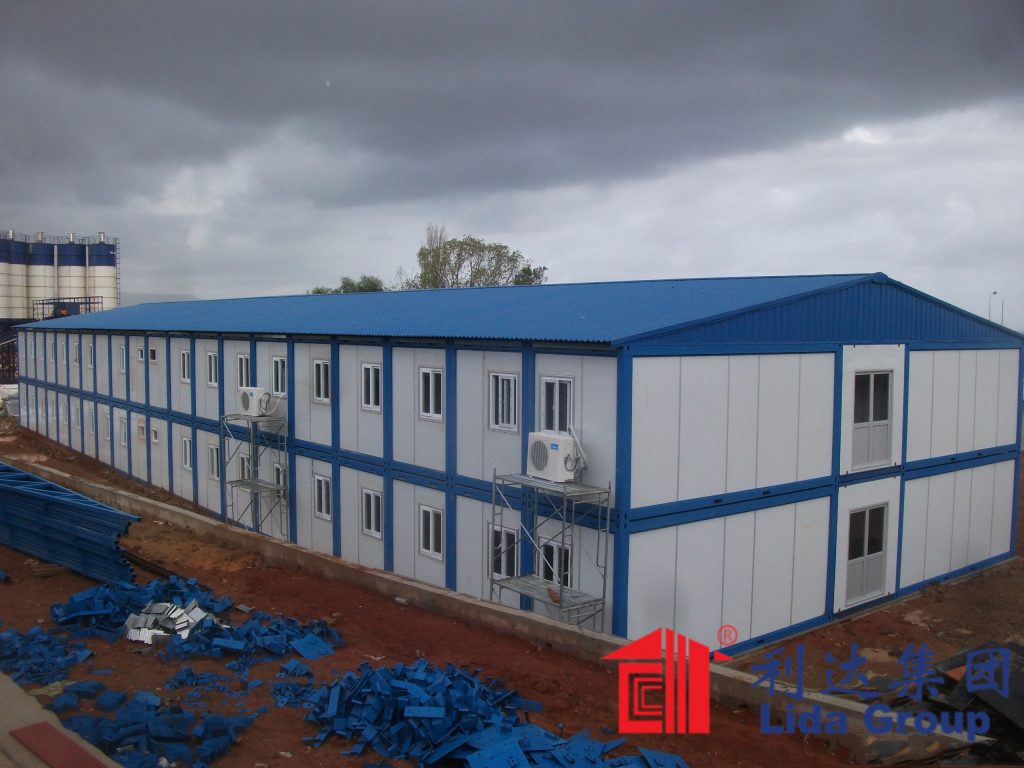
3. Developer-Centric Services: Beyond Products to Partnership
Global developers need more than just high-quality products—they need reliable partners who can support them through every stage of a project, from design to delivery to after-sales service. Lida Group distinguishes itself by offering a suite of developer-centric services that address the unique challenges of urban prefab projects. These services turn a transactional relationship into a strategic partnership.
3.1 Custom Design Support
Every urban project is unique, and developers often need to tailor housing solutions to local market needs, cultural preferences, or regulatory requirements. Lida Group’s in-house design team works closely with developers to create custom solutions that align with their project goals.
The design support includes:
- Local Market Analysis: Lida Group’s team researches local housing trends (e.g., preferred room sizes, layout styles) and regulatory requirements (e.g., building codes, safety standards) to ensure the houses meet local needs. For example, in Muslim-majority cities like Jakarta or Istanbul, the team designs houses with separate prayer rooms—a feature that is in high demand but often overlooked by generic prefab providers.
- 3D Modeling and Prototyping: Using advanced 3D modeling software, the team creates detailed renderings of the project, allowing developers to visualize the final product before production begins. For large projects, Lida Group also builds physical prototypes of the houses, so developers can test functionality and make adjustments early in the process.
- Cost Optimization: The design team works to balance customization with cost efficiency, suggesting modifications that reduce costs without compromising quality. For example, if a developer wants to add a balcony to each house, the team might recommend using a modular balcony design that can be mass-produced, lowering the per-unit cost.
This custom design support is critical for developers operating in diverse urban markets. A European developer partnering with Lida Group to build 400 houses in Nairobi, Kenya, noted: “We didn’t just need a house—we needed a house that fit Kenyan families’ needs: more storage space for food, outdoor areas for cooking, and durability for the hot climate. Lida’s design team listened to us and adapted their product to meet those needs, which made the project a success.”
3.2 End-to-End Project Management
Urban projects are complex, with multiple stakeholders (contractors, local governments, community groups) and tight deadlines. Lida Group takes the stress out of project management by offering end-to-end support, from production to delivery to assembly.
The project management services include:
- Production Scheduling: Lida Group creates a detailed production schedule that aligns with the developer’s timeline, ensuring modules are manufactured and delivered on time. For large projects, the team uses just-in-time delivery—shipping modules to the site as they are needed—reducing the need for on-site storage (which is expensive in urban areas).
- Logistics Coordination: Shipping prefab modules to urban sites can be challenging, due to traffic congestion, narrow roads, or limited access. Lida Group’s logistics team works with local transport companies to plan routes, secure necessary permits, and coordinate delivery times (often scheduling deliveries during off-peak hours to avoid traffic). In dense cities like Bangkok, the team even uses small trucks or forklifts to move modules through narrow streets.
- On-Site Assembly Supervision: While Lida Group trains local workers to assemble the houses, the company also sends a team of supervisors to the site to ensure assembly is done correctly and efficiently. The supervisors address any issues that arise (e.g., missing parts, site delays) and provide daily progress reports to the developer—giving developers peace of mind that the project is on track.
For a developer building a 500-house project in Manila, Philippines, Lida Group’s project management services were a lifesaver. “Manila’s traffic is chaotic, and getting materials to the site is a nightmare,” the developer said. “Lida handled all the logistics—they delivered modules at 2 a.m. to avoid traffic, and their supervisors made sure assembly stayed on schedule. We didn’t have to worry about a thing.”
3.3 After-Sales Support and Maintenance
The relationship between Lida Group and developers does not end when the project is completed. Urban prefab houses, like all buildings, need occasional maintenance, and developers need a reliable partner to address issues quickly. Lida Group offers comprehensive after-sales support to ensure the houses remain in good condition.
The after-sales services include:
- Warranty Coverage: Lida Group provides a 10-year warranty on the sandwich panels (the core component of the houses) and a 5-year warranty on other structural parts (like frames and doors). This warranty gives developers confidence in the product’s durability and reduces the risk of costly repairs.
- Local Maintenance Teams: In key urban markets, Lida Group has established local maintenance teams that can respond to repair requests within 24–48 hours. The teams are trained to fix common issues (e.g., leaky roofs, faulty locks) and use genuine Lida Group parts to ensure quality.
- Upgrade Services: As urban markets evolve, developers may want to upgrade existing houses to meet new demands (e.g., adding solar panels, expanding living spaces). Lida Group offers upgrade services, providing new modules or components that can be easily integrated into existing houses.
This after-sales support is particularly valuable for developers with large portfolios of prefab houses. A South African developer who owns 1,200 Lida Group houses in Johannesburg said: “When a tenant reports a problem, we just call Lida’s local team, and they fix it within a day. This keeps our tenants happy and reduces our maintenance costs—we spend 30% less on repairs than we do for our traditional houses.”
3.4 Financing and Partnership Opportunities
Many developers in urbanizing areas face challenges accessing financing for prefab projects, as some lenders are unfamiliar with prefab technology and view it as risky. Lida Group addresses this by offering financing support and strategic partnership opportunities.
The financing support includes:
- Lender Education: Lida Group works with local and international lenders to educate them about the benefits of prefab construction (e.g., lower risk, faster timelines) and provide data on the performance of its houses. This helps lenders feel more confident in approving loans for Lida Group projects.
- Payment Plans: Lida Group offers flexible payment plans for developers, such as 30% down payment upon order, 50% upon delivery, and 20% upon project completion. This reduces the upfront capital burden for developers, who often need to allocate funds to multiple projects.
- Joint Ventures: For large-scale urban projects (e.g., 1,000+ houses), Lida Group sometimes enters into joint ventures with developers, investing in the project in exchange for a share of the profits. This partnership model is particularly attractive for developers in emerging markets, where access to capital is limited.
A Colombian developer who partnered with Lida Group on a 1,500-house project in Bogotá said: “We couldn’t get a loan from local banks because they didn’t understand prefab. Lida worked with an international lender to secure financing, and they offered a payment plan that let us spread out our payments over 18 months. Without that support, we never could have taken on a project of this size.”
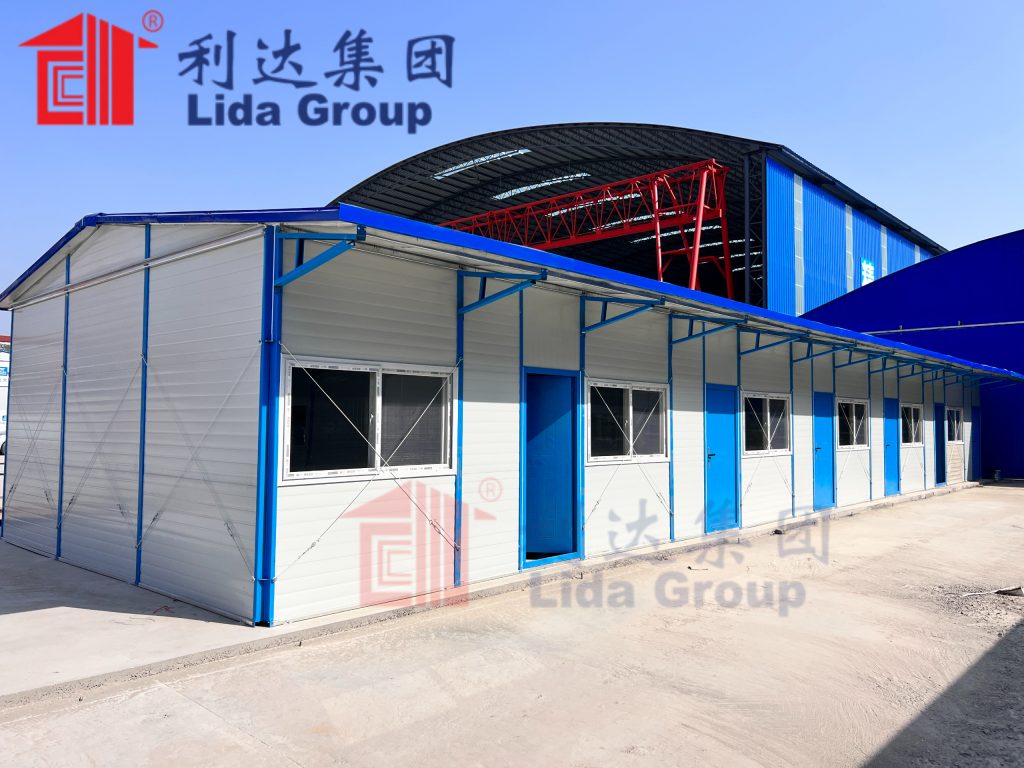
4. Real-World Success Stories: Global Developers Thriving with Lida Group
Numbers and features tell part of the story, but real-world results are what truly convince developers to choose Lida Group. Across Asia, Africa, and Latin America—some of the fastest-urbanizing regions in the world—developers have partnered with Lida Group to deliver successful projects that meet market demand, stay on budget, and align with sustainability goals. Below are three detailed case studies that highlight these successes.
4.1 Case Study 1: Addressing Mumbai’s Slum Housing Crisis with 2,000 Affordable Homes
Mumbai, India’s financial capital, is one of the most densely populated cities in the world, with over 60% of its population living in slums. The city’s housing crisis is acute: demand for affordable homes far outstrips supply, and traditional construction is too slow and expensive to keep up. In 2021, Mumbai-based developer Mahindra Lifespace partnered with Lida Group to build 2,000 prefab mobile houses in the suburban neighborhood of Thane—targeting low-income families earning \(300–\)500 per month.
The project faced three key challenges: tight budgets, limited land, and strict environmental regulations. Lida Group addressed each challenge with its core strengths:
- Cost Efficiency: Lida Group’s prefab system reduced construction costs by 35% compared to traditional methods, allowing Mahindra Lifespace to price the homes at $12,000 each—well within the budget of the target demographic. The developer also used Lida Group’s flexible payment plan (30% down, 50% on delivery, 20% on occupancy) to reduce upfront capital pressure.
- Space Optimization: The project was built on a 5-acre plot of land—half the size required for a traditional 2,000-house development. Lida Group’s houses, which can be installed on small, irregular plots, were arranged in a compact layout with shared green spaces, maximizing land use efficiency.
- Sustainability Compliance: The houses were designed to meet India’s GRIHA 4-star certification standards. They included solar panels for electricity, low-flow water fixtures, and recyclable materials—helping Mahindra Lifespace comply with Mumbai’s strict environmental regulations for new residential projects.
The project was a resounding success. Construction was completed in just 10 months (compared to 24 months for a traditional project), and all 2,000 houses were sold within 3 months of launch. The residents praised the houses’ durability (they withstood Mumbai’s heavy monsoon rains) and comfort (the insulation kept interiors cool during the city’s hot summers). For Mahindra Lifespace, the project was a strategic win: it established the developer as a leader in affordable, sustainable housing and opened up new market opportunities in other Indian cities.
4.2 Case Study 2: Temporary Worker Housing for Lagos’ Infrastructure Boom
Lagos, Nigeria’s economic hub, is experiencing a massive infrastructure boom—with new roads, bridges, and airports under construction to support the city’s growing population. This boom has created a demand for temporary housing for construction workers, who often live in overcrowded, unsanitary conditions. In 2022, Nigerian developer Grenadines Homes partnered with Lida Group to build 1,500 prefab mobile houses for workers on the Lagos-Ibadan Expressway expansion project.
The project’s key requirements were speed, portability, and low maintenance—all areas where Lida Group excels:
- Rapid Deployment: The project needed to house 7,500 workers within 3 months to avoid delaying the expressway construction. Lida Group manufactured the house modules in its Ghanaian factory (to reduce shipping time) and delivered them to Lagos in 4 weeks. A team of 50 local workers (trained by Lida Group) assembled the 1,500 houses in just 8 weeks—meeting the tight deadline.
- Portability: Once the expressway project is completed (in 2025), the houses will be disassembled and relocated to other construction sites in Lagos. Lida Group’s modular design makes this easy: each house can be taken apart in 4 hours and reassembled in a new location in 6 hours.
- Low Maintenance: Grenadines Homes needed housing that required minimal upkeep, as the developer did not have the resources to manage frequent repairs. Lida Group’s houses, with their durable sandwich panels and rust-resistant steel frames, required just \(20 per house per year in maintenance—far less than the \)150 per year for traditional temporary housing (like tents or wooden shacks).
The project has had a transformative impact on the workers’ lives. Before moving into the Lida Group houses, workers lived in tents with no running water or electricity; now, they have access to clean water, solar-powered lighting, and private bedrooms. The improved living conditions have reduced worker absenteeism by 25%, helping to keep the expressway project on schedule. For Grenadines Homes, the partnership with Lida Group has been profitable: the developer now rents the houses to other construction companies, creating a recurring revenue stream.
4.3 Case Study 3: Mixed-Use Development in São Paulo’s Suburban Growth Zones
São Paulo, Brazil’s largest city, is expanding rapidly into suburban areas (known as “periferias”), where demand for mixed-use developments—combining housing, shops, and community spaces—is growing. In 2023, Brazilian developer MRV Engenharia partnered with Lida Group to build a mixed-use project in the suburban neighborhood of Itaquera, featuring 800 residential units, 50 commercial spaces, and a community center.
The project’s success relied on Lida Group’s flexibility and customization capabilities:
- Mixed-Use Flexibility: Lida Group’s modular design allowed MRV Engenharia to create diverse spaces: 30-square-meter studio apartments for young professionals, 60-square-meter family homes, 15-square-meter shops for local businesses, and a 200-square-meter community center (made by combining 10 modules). This diversity attracted a wide range of buyers and tenants, ensuring the project’s financial viability.
- Cultural Customization: Lida Group’s design team adapted the houses to meet Brazilian families’ preferences—adding outdoor patios for cooking (a common cultural practice in Brazil) and extra storage space for household items. The team also ensured the houses complied with Brazil’s AQUA environmental certification, incorporating rainwater harvesting systems and native landscaping.
- Cost Alignment: MRV Engenharia needed to keep the project’s total cost under \(20 million to remain competitive. Lida Group’s prefab system reduced construction costs by 30%, allowing the developer to meet this target while still offering high-quality spaces. The commercial spaces, in particular, were a hit: all 50 shops were rented within 2 months of launch, generating \)15,000 in monthly rental income for the developer.
The Itaquera project has become a model for suburban development in São Paulo. It has revitalized the neighborhood, creating jobs and improving access to essential services (like grocery stores and healthcare clinics). For MRV Engenharia, the project has strengthened its position in Brazil’s growing suburban housing market and led to new partnerships with Lida Group for projects in Rio de Janeiro and Belo Horizonte.
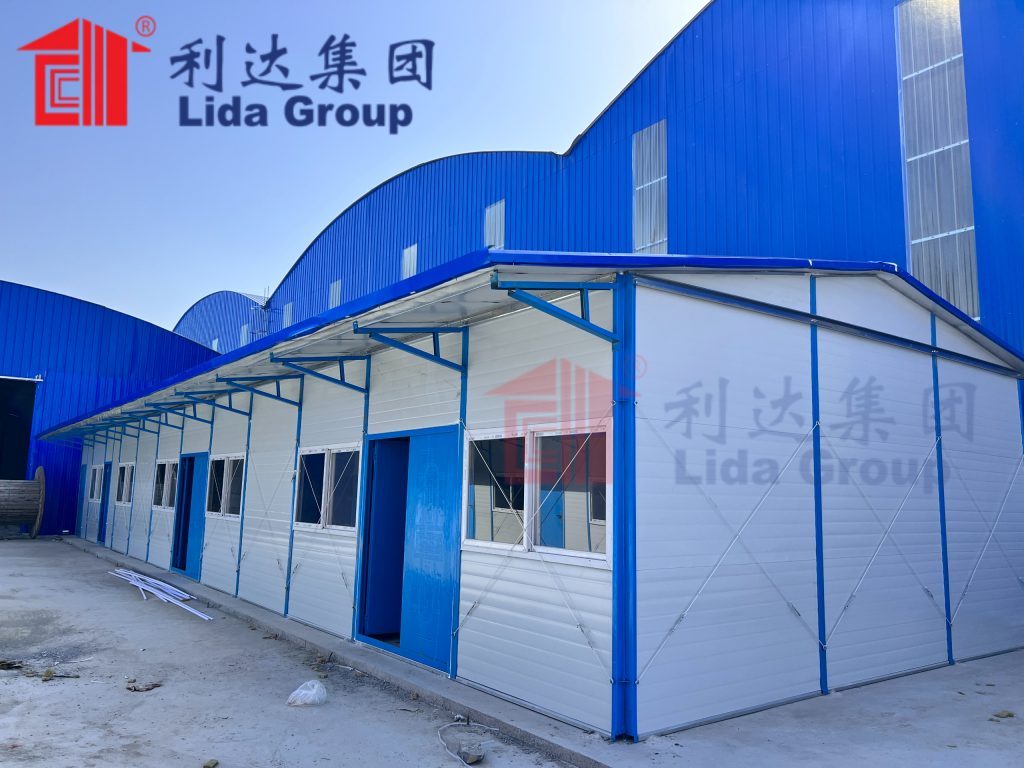
5. Why Lida Group Stands Out Among Competitors
In a crowded prefab housing market, global developers have many options—but Lida Group consistently stands out. The company’s success is not just due to its high-quality products but also its deep understanding of the unique challenges of urbanizing areas. Below are the key factors that differentiate Lida Group from its competitors.
5.1 Global Footprint with Local Expertise
Unlike many prefab providers, which operate in a single region, Lida Group has a truly global footprint. The company has manufacturing facilities in 12 countries (including China, India, Ghana, Brazil, and Mexico) and local offices in 30+ urbanizing cities. This global presence gives developers two key advantages:
- Reduced Shipping Costs and Time: Manufacturing modules in local or regional facilities cuts down on shipping costs (by 40–50%) and delivery time (by 60%), which is critical for developers working on tight deadlines.
- Local Market Knowledge: Lida Group’s local teams have deep expertise in the regulatory, cultural, and economic nuances of their regions. For example, the company’s Indian team understands India’s complex building codes and GRIHA certification process, while its Brazilian team knows how to adapt houses to withstand the country’s tropical storms. This local knowledge ensures that projects run smoothly and avoid costly mistakes.
Competitors, by contrast, often have centralized manufacturing facilities (e.g., in Europe or North America), which lead to higher shipping costs and longer delivery times. They also lack the local expertise to navigate the unique challenges of emerging market cities—resulting in delayed projects or products that do not meet local needs.
5.2 Continuous Innovation Focused on Urban Needs
Lida Group invests 8% of its annual revenue in research and development (R&D)—far more than the prefab industry average of 3%. The company’s R&D efforts are laser-focused on solving the specific challenges of urbanizing areas, such as:
- Space-Saving Designs: Lida Group is developing ultra-compact house modules (as small as 10 square meters) that are optimized for dense urban environments. These modules include foldable furniture and multi-purpose spaces (e.g., a living room that converts to a bedroom) to maximize usable space.
- Smart Urban Integration: The company is integrating smart technology into its houses to meet the needs of tech-savvy urban residents. For example, new modules include built-in Wi-Fi routers, smart meters (to track energy and water use), and app-controlled locks—features that attract young professionals in cities like Bangalore or Dubai.
- Disaster Resilience: Many urbanizing areas are prone to natural disasters (e.g., floods in Bangkok, earthquakes in Mexico City). Lida Group is developing disaster-resistant modules with reinforced frames, waterproof panels, and emergency backup systems (like solar-powered generators)—helping developers build housing that can withstand crises.
This focus on urban-specific innovation sets Lida Group apart from competitors, which often offer generic prefab solutions that are not tailored to the unique needs of cities in emerging markets.
5.3 Transparent Pricing and Risk Mitigation
Developers in urbanizing areas face significant financial risks—from cost overruns to delayed projects. Lida Group mitigates these risks through transparent pricing and predictable timelines:
- Fixed-Price Contracts: Lida Group offers fixed-price contracts for all projects, ensuring that developers do not face unexpected cost increases. This is a stark contrast to competitors, which often use “cost-plus” contracts that can lead to overruns of 10–20%.
- Guaranteed Timelines: The company guarantees delivery and assembly timelines for all projects, with penalties for delays (e.g., a 5% discount on the total project cost for each week of delay). This gives developers confidence that their projects will be completed on time, allowing them to plan for rental income or sales launches.
- Risk-Sharing Partnerships: For large, high-risk projects (e.g., in conflict-prone areas or disaster zones), Lida Group offers risk-sharing partnerships—where the company absorbs a portion of the risk (e.g., covering the cost of module replacement if damaged) in exchange for a larger share of the profits. This model reduces developers’ exposure to risk and makes it easier to take on ambitious projects.
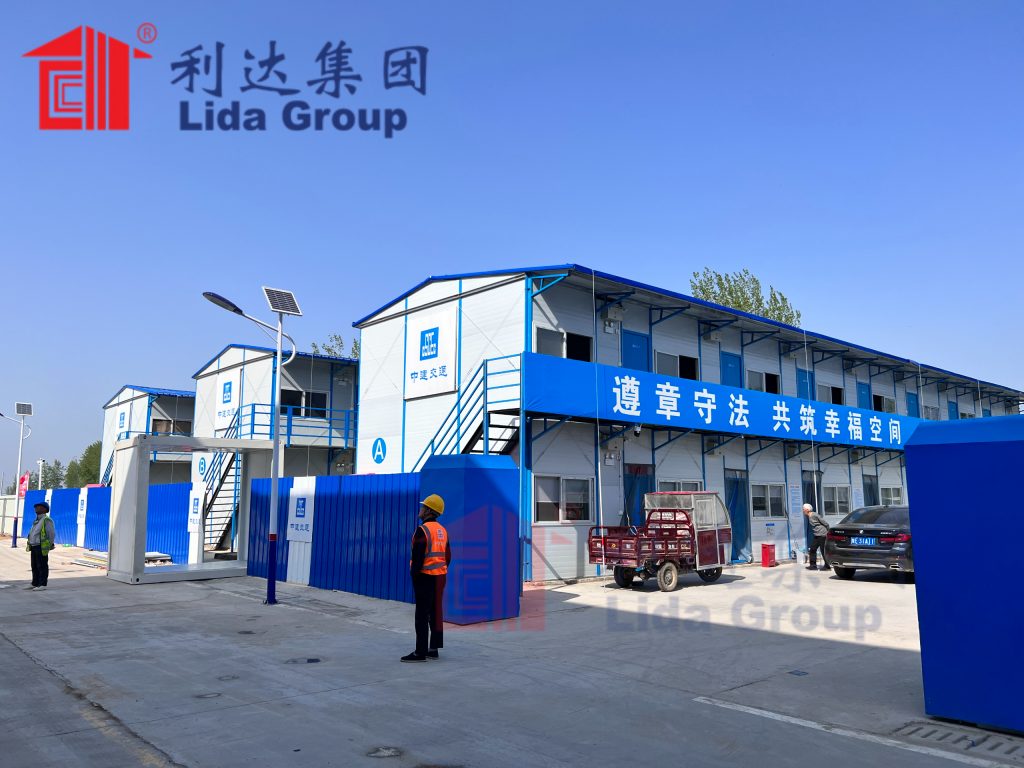
6. Conclusion
In rapidly urbanizing areas—where demand for affordable, sustainable housing is soaring and developers face pressure to cut costs, accelerate timelines, and adapt to diverse needs—Lida Group has emerged as the partner of choice for global developers. The company’s success is rooted in its ability to deliver solutions that address developers’ most pressing pain points: low-cost, easy-assemble prefab mobile houses that are flexible, sustainable, and backed by comprehensive support services.
Lida Group’s core advantages—cost efficiency, rapid assembly, flexibility, and sustainability—are perfectly aligned with the needs of urban projects. Whether a developer is building affordable housing in Mumbai’s slums, temporary worker housing in Lagos, or mixed-use spaces in São Paulo’s suburbs, Lida Group’s modular system can be tailored to meet the project’s unique requirements. The company’s developer-centric services—from custom design support to end-to-end project management and after-sales maintenance—turn a simple supplier relationship into a strategic partnership, reducing risk and ensuring success.
Real-world case studies demonstrate the tangible impact of this partnership: developers complete projects faster, reduce costs, attract more buyers or tenants, and establish themselves as leaders in sustainable urban housing. Lida Group’s global footprint, focus on urban-specific innovation, and transparent pricing further differentiate the company from competitors, making it the clear choice for developers operating in the world’s fastest-growing cities.
As urbanization continues to accelerate in the coming decades, the demand for solutions like Lida Group’s will only grow. For developers looking to thrive in this dynamic market, partnering with Lida Group is not just a business decision—it is a strategic investment in the future of urban housing. By choosing Lida Group, developers are not just building houses; they are building sustainable, inclusive cities where everyone has access to safe, affordable shelter.
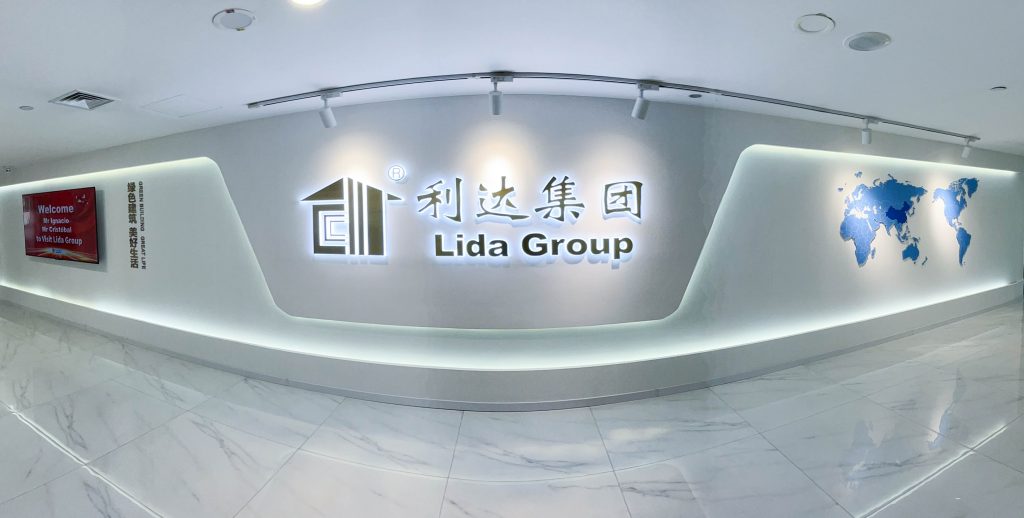
Related news
-
Disaster Relief Transformed by Lida Group's Prefab Mobile Houses Offering Rapid, Easy-Assemble Shelter with Low-Cost Durability
2025-10-09 17:20:43
-
Sustainable and Efficient: Lida Group's Easy-Assemble Building System Utilizes Low-Cost Sandwich Panels for Green Prefab Mobile Houses
2025-10-09 17:39:48
-
Lida Group Revolutionizes Affordable Living with Low-Cost Sandwich Panel Houses Designed as Easy-Assemble Prefab Mobile Homes
2025-10-09 17:05:39
contact us
- Tel: +86-532-88966982
- Whatsapp: +86-13793209022
- E-mail: sales@lidajituan.com


